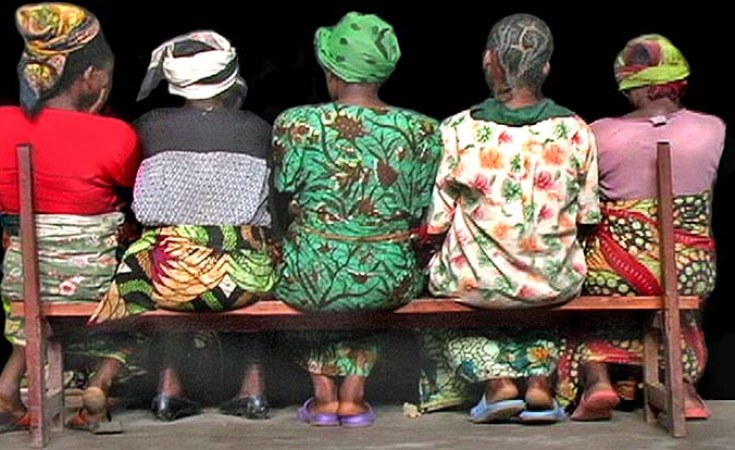Rape and other forms of sexual violence in the Democratic Republic of Congo (DRC) are not limited to the war zones in the eastern parts of the country - women detained miles away from conflict are suffering in similar ways to those in the east.
This sad truth is demonstrated in the new report on the use of rape as torture published today by Freedom from Torture, which features the voices of torture survivors organised in the Survivors Speak OUT! network.
There have been more than two decades of armed conflict, sexual violence against women and widespread impunity for their abusers in the DRC.
Freedom from Torture's report is based on evidence from doctors' examinations of women raped and violated in the DRC who subsequently sought help from the charity, and asylum in the United Kingdom.
Most of the women featured in the report were based in Kinshasa, far away from the conflict zones, and the evidence shows that sexual violence is largely being used as a form of torture not in the battlefield but by the authorities in detention centres.
Wherever it is committed, the effects of sexual violence are the same.
Women across the DRC are suffering in silence. They don't know where to turn for advice, counselling or any kind of support. The infrastructure in place is not enough to help them.
The adoption of a law against sexual violence in 2006 and the promulgation of the law criminalising torture in 2011 are simply not enough. Lack of implementation and insufficient resources mean that well-meaning initiatives are not bringing changes in practice.
Perpetrators must be prosecuted, the judiciary must be independent in doing this work, survivors must be assisted to rebuild their lives, and the population must be educated about sexual violence and ways of supporting survivors.
Torture is intended to silence its victims and it is therefore all the more important that the survivors of this abhorrent practice are empowered to speak out. Doing so will ensure that they are no longer seen as stigmatised victims and instead recognised as having a vital voice in finding durable solutions.
But there is no point raising awareness of survivors' rights if there is no enforcement of the law.
Those represented by Survivors Speak OUT! hope the government of the DRC will improve the conditions of detention centres and allow regular visits by international monitoring bodies. We hope the United Nations will help end the conflict in the east of the country which gives the DRC government an excuse to hide behind.
We hope too that the the UN will ensure the DRC government respects the human rights conventions it has signed up to, including the UN Convention Against Torture. We applaud the UK's leadership of the initiative to stop sexual violence in conflict and hope this report proves how vital it is that in the DRC this effort is expanded beyond the conflict zone and throughout the entire country.
We know these are a long list of hopes and that many of them will not be easy or quick to achieve. But this report shows the alternative - a country where women continue to suffer sexual torture in silence, without access to support or justice, and where perpetrators continue to act with impunity.
As torture survivors, our personal experiences have shown us that somehow hope does remain, even in the very darkest hours. So we write with the hope that the DRC can again become a place where women and men live in freedom, safety and with their human rights and dignity restored.
Kolbassia Houssaou coordinates the Survivors Speak OUT! network, a group of torture survivors and former clients of the British-based charity, Freedom from Torture, who draw on their personal experience of torture and seeking asylum to influence decision-makers and raise public awareness of the challenges facing survivors trying to rebuild their lives.


